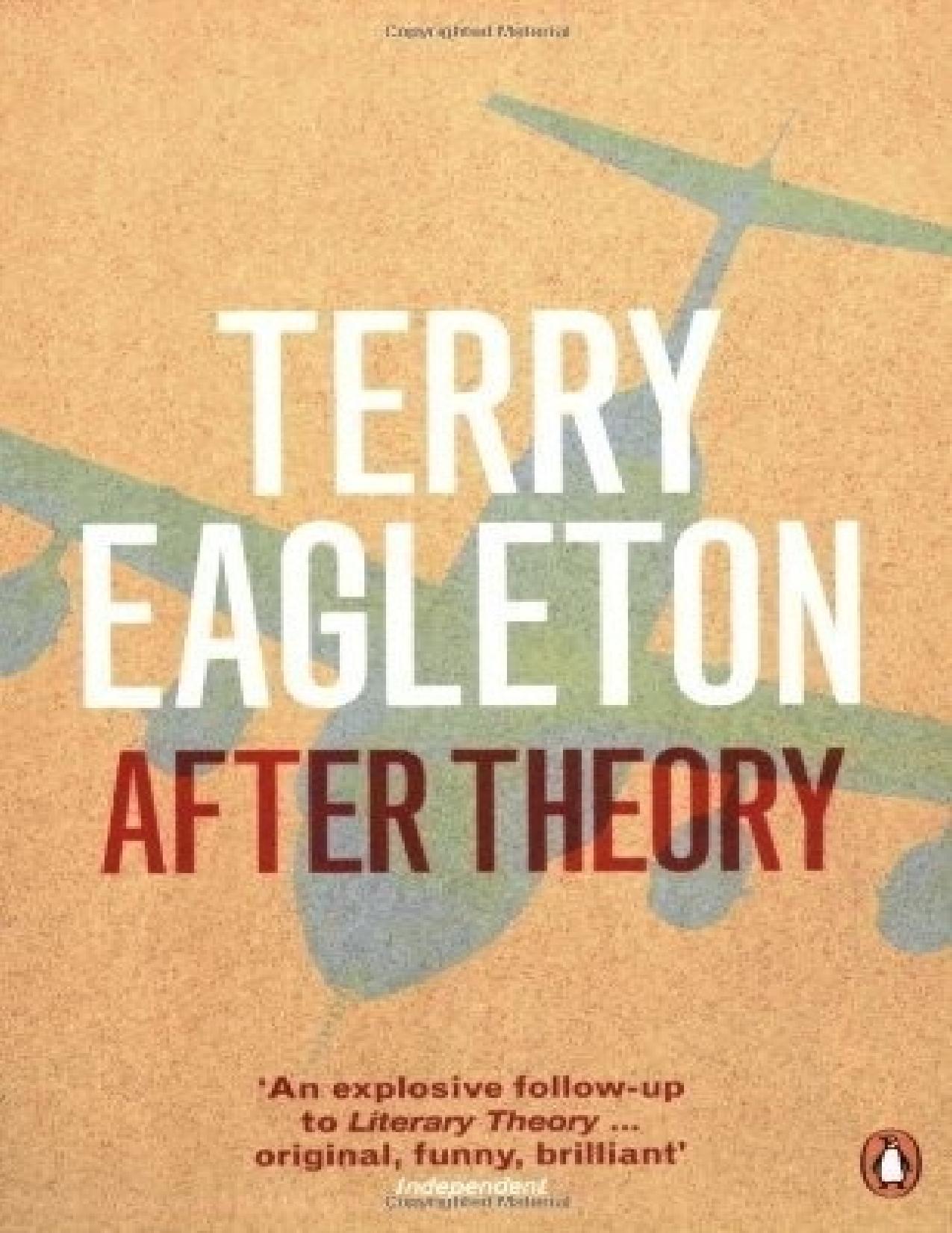
After Theory PDF
Preview After Theory
The golden age of cultural theory (the product of a decade and a half, from 1965 to 1980) is long past. We are living now in its aftermath, in an age which, having grown rich in the insights of thinkers like Althusser, Barthes and Derrida, has also moved beyond them. What kind of new, fresh thinking does this new era demand? Eagleton concludes that cultural theory must start thinking ambitiously again - not so that it can hand the West its legitimation, but so that it can seek to make sense of the grand narratives in which it is now embroiled.
From Publishers WeeklyThe author of the seminal cultural studies primer Literary Theory now levels an equally trenchant critique at the field in this brilliant and provocative reassessment. Writing in a valedictory mood, Eagleton traces the rise of cultural theory through its golden age (c. 1965-80), and bemoans its decline into a shallow, depoliticized preoccupation with sex and pop-culture ephemera. As grad students churn out "reverential essays on Friends," latter-day cultural theorists espouse a "dim-witted" postmodernism that dismisses as hegemonic claptrap all talk of common values, objective truth and coherent historical narratives; they have thereby, he contends, turned away from the great socialist project of collective action in support of universal human liberation, and aligned themselves with the nihilistic thrust of a capitalism they pretend to oppose. Alongside Eagleton's indictment of the sorry state of cultural studies is a ringing defense of its potential to address grander subjects than The Matrix or nipple piercing, which he demonstrates by weaving in deft and illuminating commentaries on such topics as Aristotle's ethics, the tension between law and morality in St. Paul and the link between the body and social justice in Lear. The book stands as both rebuke and example to the kind of academic writer who deploys turgid abstractions to flesh out meager ideas; virtually every paragraph crackles with fresh and compelling insights, conveyed in a style that's intellectually sophisticated yet lucid, funny and down to earth. In rescuing cultural studies from some of its less thoughtful practitioners, Eagleton confirms its continuing importance to our understanding of the world.
Copyright © Reed Business Information, a division of Reed Elsevier Inc. All rights reserved.
Prolific and influential British cultural theorist Eagleton begins his newest treatise, a marvel of speedway wit, vivifying thinking, and humanitarian concerns, by assessing the direction criticism has taken in the wake of such intellectual giants as Derrida, Foucault, and Barthes. His take on academic concerns is acute and deliciously ironic, but he soon turns to the conundrums of everyday life in the global village, thus marking the populist path he believes cultural theory itself must follow. Eagleton defines theory as nothing less than "the taxing business of trying to grasp what is actually going on," then performs this invaluable feat by tackling such complex matters as our vision of the "good life," the specter of poverty, and the nature of morality. Along the way he cogently tracks the failure of socialism, the coalescence of revolutionary nationalism, and the concurrent rise of unfettered capitalism and violent forms of fundamentalism. Scathingly critical of America's current administration and passionate in his advocacy of knowledge and rational and independent thought, Eagleton is a welcome breath of fresh air in stifling times. Donna Seaman
Copyright © American Library Association. All rights reserved
